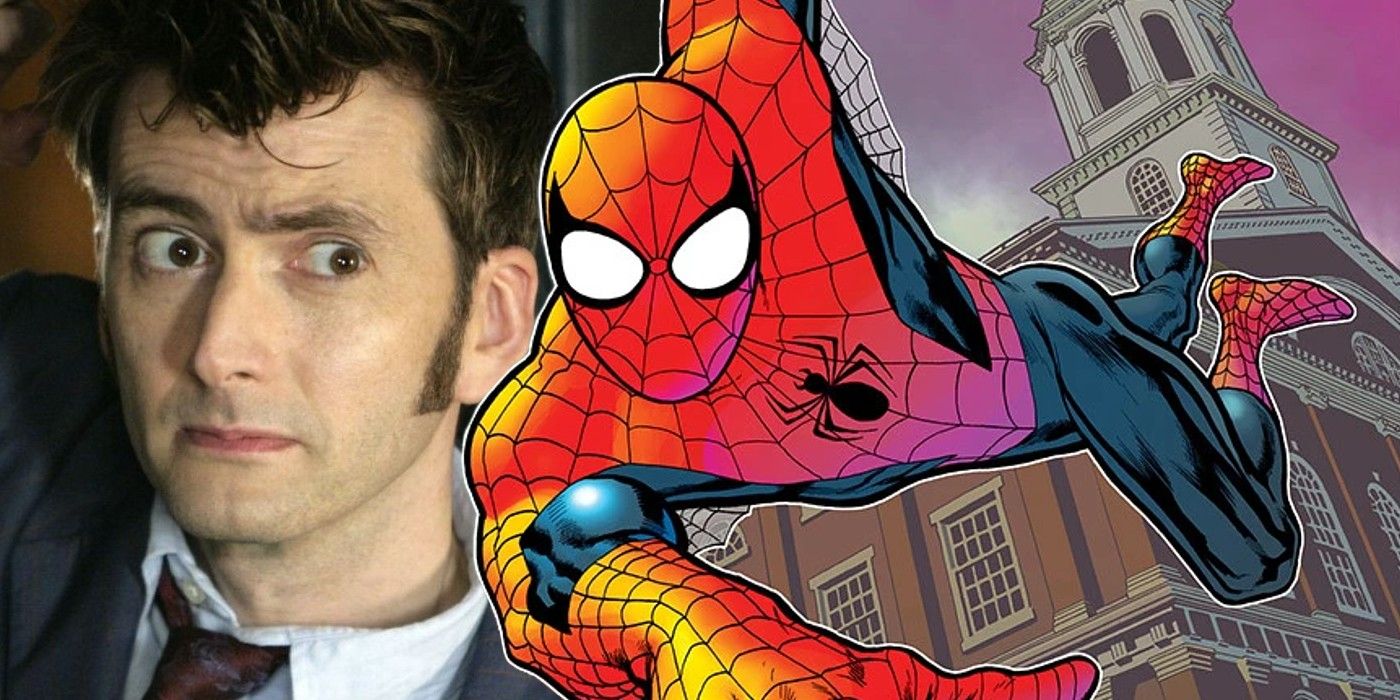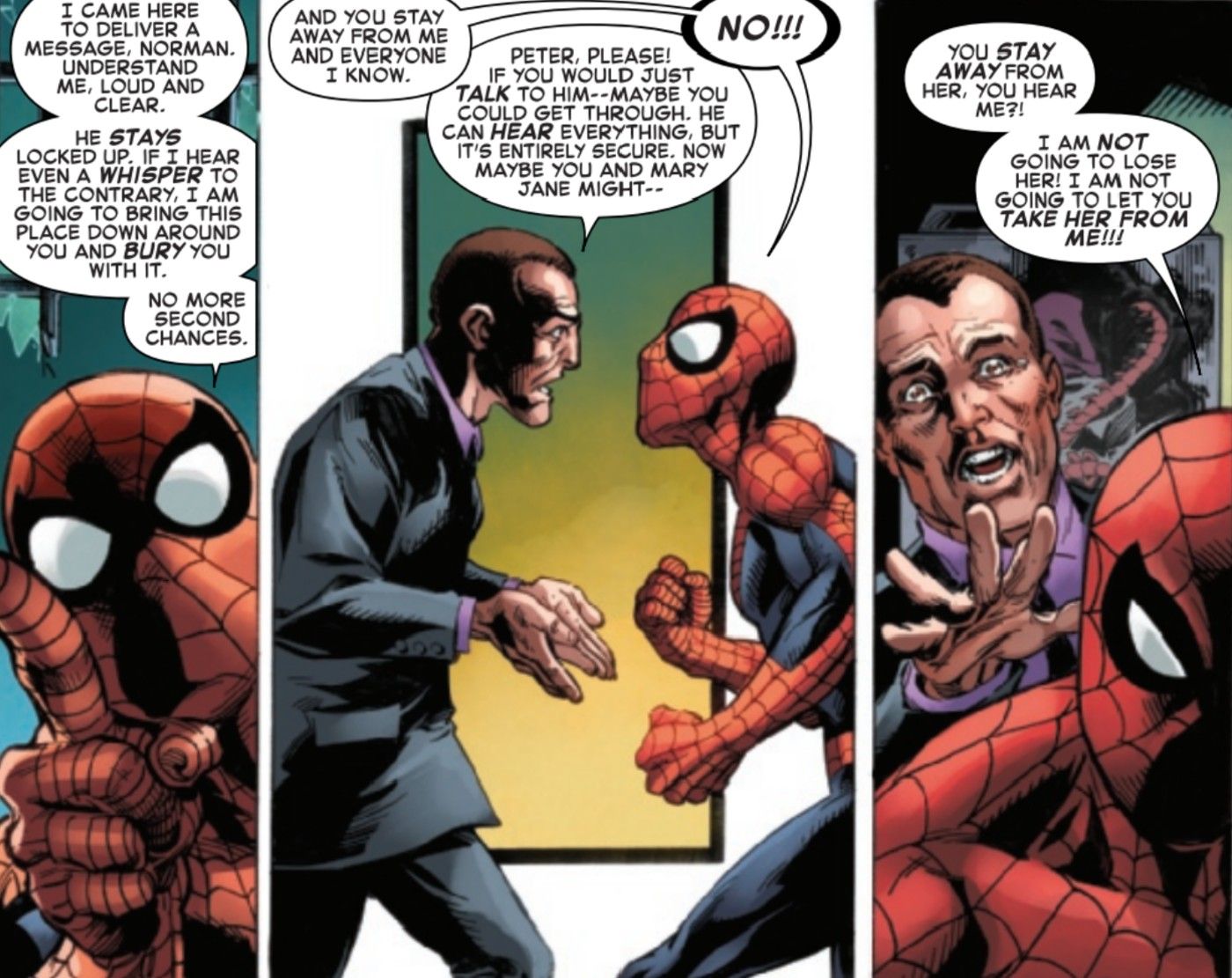
Warning: spoilers to Amazing Spider-Man #57!
Although Spider-Man has faced countless villains in his superhero career, only a select few have ever truly hurt him to the point of traumatizing the usually optimistic and chatty wall-crawler. The latest in that special fraternity is the villain Kindred, whose gauntlet of physical, emotional, and psychological warfare against Spider-Man just ended with his defeat and incarceration. But Peter Parker seems to have been changed on a deeper level by the experience, echoing an iconic Doctor Who moment in a way that shows the extent of his transformation.
In Nick Spencer's run on The Amazing Spider-Man, Kindred has been haunting Spider-Man from a distance, manipulating his enemies and allies toward a mysterious but deadly endgame. With his friends possessed and Mary Jane Watson in danger, Peter was shocked even further when he learned Kindred was his former friend Harry Osborn. When Peter refused to accept responsibility for the pain and suffering he caused those in his life, Harry repeatedly killed and resurrected him, something that lingered long after Kindred was defeated. Although Peter and his friends were left relatively unharmed, he was unable to speak about the trauma he suffered, even to the allies who had leapt to his aid.
In Amazing Spider-Man #57 by Nick Spencer and Mark Bagley, Spider-Man confronts Norman Osborn at Ravencroft where Kindred is incarcerated. Confronted with the painful history between Peter and the Osborn family, the reformed Norman not only attempts to apologize but asks Peter for help with his former friend. But Peter refuses and renounces both Norman and Harry, choosing to look after the good people in his life instead of helping those who brought nothing but pain and suffering to him. He tells Norman that Kindred is to stay incarcerated, "If I hear even a whisper to the contrary, I am going to bring this place down around you and bury you with it. No more second chances."

Peter's new mantra echoes Doctor Who's 2005 "Christmas Invasion" episode which was the full introduction to David Tennant's time as the Tenth Doctor. Still recovering from his regeneration, the Doctor has to deal with an alien invasion from a species called the Sycorax, all while figuring out his new persona. The Doctor triumphs and spares the Sycorax leader's life on the condition that the Sycorax leave and never return. When he dishonorably reneges on their deal, the Doctor sends the alien plummeting to his death. "No second chances. I'm that sort of a man," the Doctor says as he accepts the new man he's become.
While the Doctor has shown a deep potential for vengeance in most of his forms, Spider-Man has always been one of Marvel's most merciful and forgiving heroes. Whether forgiving his childhood bully, comforting the Sandman in what seemed like his final hours, revealing his identity to comfort longtime foe J. Jonah Jameson, or allowing Doctor Octopus to start again with a clean slate, Peter has always been a hero positively eager to hand out second, third, or fourth chances. While the Doctor's transformation was more literal, the Tenth Doctor also ultimately chose kindness and compassion, making Spider-Man's resolution that there will be no more second chances all the more damning. In choosing vengeance and shutting out his allies, Peter has shown that Kindred has hurt him so deeply that his very nature is injured, and perhaps transformed for good.
As Peter's behavior to Norman shows how much the events of 'Last Remains' have truly scarred him, Peter, Norman, and others in their peripheral appear to be still in danger as Kindred smiles at the end, confirming things are going exactly as intended. As Doctor Who constantly dealt with the consequences of his own actions, it would appear Kindred is not done teaching Spider-Man the true extent of his sins.
from ScreenRant - Feed https://ift.tt/39GJRtj

No comments: